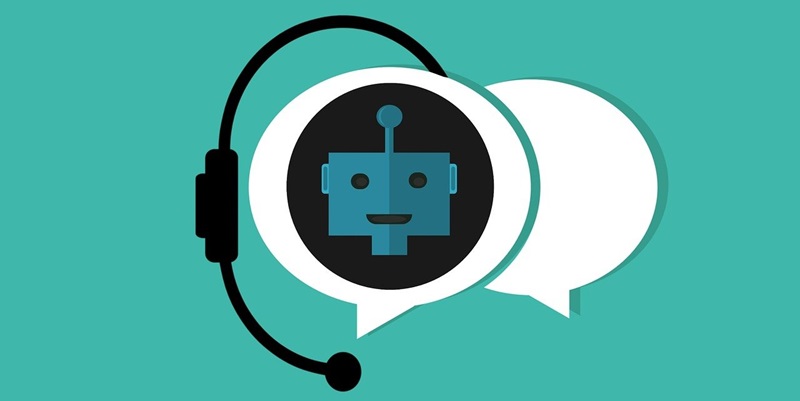From the advent of artificial intelligence (AI) technology, one of its most notable contributions has been the development of AI assistants. These intelligent virtual companions have seamlessly integrated into our routines, simplifying tasks and enhancing overall efficiency. In this article, we delve into the world of AI assistants, exploring their functions, capabilities, and the significant impact they have had on our everyday lives.
Explanation of AI assistants
AI assistants, also known as virtual assistants or chatbots, are computer programs specifically designed to simulate conversation with human users. They utilize natural language processing (NLP) algorithms and machine learning techniques to understand and respond to user queries and commands.
Simulating conversation with humans
The primary goal of AI assistants is to replicate human-like conversation interactions. Through advanced algorithms, they are able to understand context, infer meaning, and generate appropriate responses, making them incredibly efficient and intelligent virtual companions.
The Role of AI Assistants in Transforming Lives
One of the most significant ways AI assistants have transformed our lives is by enhancing productivity. By automating routine tasks and providing instant access to information, these assistants free up valuable time and mental energy. Whether it’s scheduling appointments, setting reminders, or managing emails, AI assistants excel at streamlining our daily activities.
Seamless Multitasking
The convenience of having an AI assistant at our fingertips has made multitasking more seamless than ever before. Through voice-activated commands, users can effortlessly switch between tasks, ask questions, and perform various actions, all without the need to physically interact with a device. This hands-free and intuitive experience has become a ubiquitous feature of AI assistants.
Voice-activated commands
Voice-activated commands have revolutionized the way we interact with technology. AI assistants have played a pivotal role in popularizing this innovation, enabling us to control our devices, access information, and execute commands simply by speaking.
A hands-free and intuitive experience
The hands-free nature of voice-activated commands, combined with the intuitive responsiveness of AI assistants, offers an unparalleled user experience. Whether it’s turning on lights, playing music, or ordering groceries, the ability to communicate effortlessly with our surroundings has become the new norm.
Integration in smart homes
AI assistants have found a prominent place in the realm of smart homes. Through their integration with various devices and systems, these assistants contribute to the creation of intelligent and interconnected living spaces. From controlling temperature and security to managing energy consumption, AI assistants enhance the overall functionality and convenience of our homes.
Contribution to interconnected homes
By acting as a central hub, AI assistants seamlessly connect and control multiple smart devices, creating a unified ecosystem within our homes. This interconnectedness allows us to control and monitor our appliances, entertainment systems, and even perform household tasks remotely, all through simple voice commands.
Analyzing user preferences and behaviors
The machine learning capabilities of AI assistants enable them to analyze vast amounts of data and learn user preferences and behaviors. With this knowledge, they can provide personalized recommendations, suggestions, and even anticipate user needs. From suggesting personalized playlists to recommending nearby restaurants, AI assistants enhance our everyday experiences.
Offering personalized recommendations
Through continuous learning and adaptation, AI assistants become more intuitive over time. They can analyze patterns in our behavior, preferences, and even moods to offer tailored recommendations. This personalization contributes to a more customized and engaging user experience, creating a sense of companionship and understanding.
The role of AI assistants in communication
AI assistants have also played a pivotal role in breaking down language barriers and fostering global communication. With real-time language translation capabilities, they enable seamless and effective communication between individuals who speak different languages. This feature opens up a world of opportunities for businesses, travelers, and individuals seeking to connect with others from different cultures.
Fostering global communication
Thanks to AI assistants, individuals can now communicate effortlessly with people from different parts of the world, forging connections and embracing diversity. This advancement in AI technology has brought us closer together and has the potential to bridge the gap between different cultures and languages.
The rise of AI assistants has ushered in a new era of technological convenience, significantly enhancing our everyday lives. These intelligent virtual companions simplify tasks, enhance productivity, and offer personalized experiences through machine learning. With their integration into smart homes and their ability to overcome language barriers, AI assistants have revolutionized the way we live, work, and communicate.
As the field of AI continues to evolve, the potential for AI assistants to further enhance our lives is boundless. With continuous advancements in technology, we can expect these virtual companions to become even more intelligent, intuitive, and seamlessly integrated into every aspect of our daily routines. The power of AI assistants is undeniable, and their impact on society will continue to shape our future.

